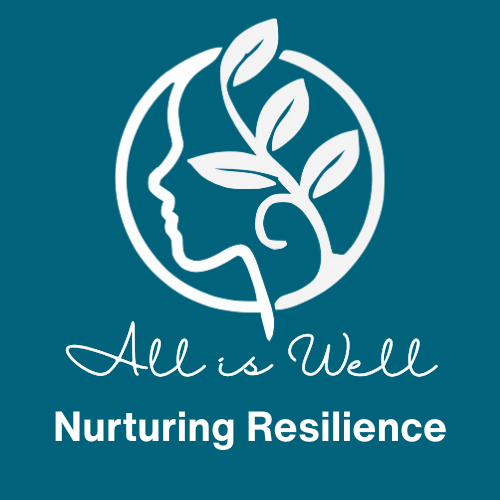Frequently Asked Questions About The All Is Well Approach
1. What is a Trauma Informed approach, and why is it important in schools?
At the All Is Well Approach, we specialise in bringing Trauma Informed practice into schools. A Trauma Informed approach recognises how stress, adversity, and trauma can affect a child’s ability to feel safe, regulate emotions, and engage in learning. By embedding this understanding, we create compassionate, predictable environments where both pupils and staff feel supported. It’s not about “fixing” children, it’s about supporting nervous systems and relationships, so that healing and learning can happen side by side.
2. What is Polyvagal Theory, and how does it guide our work?
Polyvagal Theory helps us understand how the nervous system responds to stress, safety, and connection. By applying this science, we help children and adults recognise their own emotional states, build co-regulation strategies, and create environments where calm, curiosity, and connection can flourish - all of which are essential for resilience and learning. Find out more about Polyvagal Theory.
3. What kind of training do we offer to staff?
We offer training sessions and workshops tailored to the needs of your setting. With years of classroom and therapy experience, we deliver training that blends research with real-life school practice. Topics include Trauma Informed practice, Polyvagal Theory in the classroom, emotional regulation strategies, and staff wellbeing. Sessions range from one-hour twilights to full-day workshops and longer-term programmes. Training is practical, reflective, and grounded in real-life school experience.
4. How does Therapy Dog support work in schools?
Research shows that Therapy Dogs can lower anxiety, improve emotional regulation, and boost confidence in school aged children. Lola, our experienced Therapy Dog, supports children through structured, gentle sessions that encourage calm, emotional expression, and connection. She helps reduce anxiety, supports co-regulation, and builds trust with children who may struggle with relationships, trauma, or emotional needs. Sessions are always led by a qualified professional, Catherine, and carefully planned for safety and impact.
5. Who can benefit from therapy dog sessions?
Children experiencing anxiety, trauma, bereavement, emotional dysregulation, or social difficulties often respond especially well. However, the benefits extend to staff too - Lola’s presence brings calm, connection, and warmth throughout the school.
6. What areas do you cover?
We currently support schools and organisations across the North West, including Warrington, Widnes, and Liverpool. We’re also developing online training, so watch this space!
7. Are your services suitable for mainstream and specialist settings?
Yes. Our experience spans mainstream classrooms, SEN provisions, alternative settings, and community settings, meaning we adapt interventions to fit diverse needs. All sessions and training are adapted to meet the needs of the setting and the individuals involved.
8. How do you ensure the welfare of Therapy Dog, Lola?
Lola’s wellbeing is a top priority. She is not overworked, and sessions are carefully scheduled with plenty of rest. She has regular vet checks, ongoing training, and we follow strict animal welfare guidelines. Catherine is trained in ethical Animal Assisted intervention practices through the AAAIP, and Lola’s comfort, consent, and safety are central to every decision we make.
9. Do you offer one-off sessions or longer-term packages?
Both! Whether you want a single wellbeing workshop, a staff inset, or an ongoing programme, we’ll work with you to create a plan that fits your setting. Many schools choose to embed our support long-term, recognising the sustained impact of Animal Assisted Interventions.
10. What is Animal Assisted Therapy in schools?
Animal Assisted Therapy in schools is when Therapy Dogs, like Lola from the All Is Well Approach, support children’s wellbeing, confidence, and ability to learn.
Beyond her calm presence, Therapy Dogs can help children regulate emotions, practise reading, reduce anxiety, and feel safe enough to connect and learn.
11. How does Animal Assisted Therapy help children with trauma or anxiety?
Therapy dogs provide a safe, non-judgemental relationship that helps children feel calmer and more secure. Research also highlights that Therapy Dogs help reduce cortisol (stress hormone) and increase oxytocin (bonding hormone), which supports recovery from trauma.
At the All Is Well Approach, Lola works alongside Catherine to support co-regulation, reduce stress, and gently build trust - vital foundations for children affected by trauma, bereavement, or anxiety.
12. Are Therapy Dogs different from emotional support animals or pets in school?
Yes. Unlike emotional support animals, Therapy Dogs like Lola are trained to deliver structured sessions that support wellbeing and learning.
Unlike classroom pets or emotional support animals, Animal Assisted Interventions are delivered by trained professionals, with safety, welfare, and measurable outcomes at the centre.
13. How do you make sure Animal Assisted Therapy is safe for schools?
All sessions are risk-assessed, child-centred, and follow strict welfare and safeguarding policies.
At the All Is Well Approach, we provide schools with risk assessments, safeguarding documentation, and clear guidance so staff and parents feel confident. Therapy dog work is always ethical, safe, and effective - for both children and Lola.
14. How do we get started or make a booking?
You can fill out the contact form on our Contact Page or email us directly at Catherine@alliswellapproach.co.uk. We’re always happy to discuss your needs and explore how we can support your school or organisation. We are always happy to advise on the best package for your school based on our experience of what works well.

